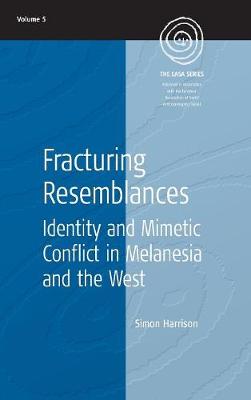EASA
1 primary work
Book 5
Western societies draw crucially on concepts of the 'individual' in constructing their images of the ethnic group and nation and define these in terms of difference. This study explores the implications of these constructs for Western understanding of social order and ethnic conflicts. Comparing them with the forms of cultural identity characteristic of Melanesia as they have developed since pre-colonial times, the author arrives at a surprising conclusion: he argues that these kinds of identities are more properly and adequately viewed as forms of disguised or denied resemblance, and that it is these covert commonalities that give rise to, and prolong, social divisions and conflicts between groups.
